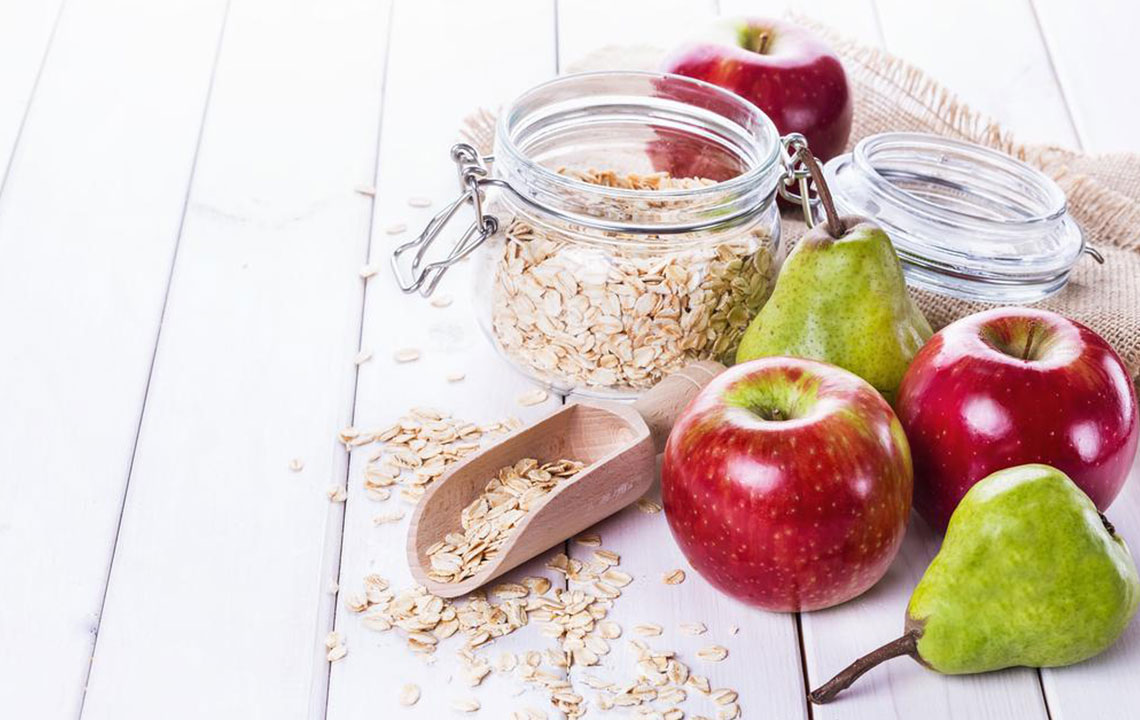Common Dietary Culprits That Disrupt Digestive Well-Being and How to Avoid Them
This comprehensive guide delves into common foods that can harm digestive health. It explains how dairy, fried foods, caffeine, processed snacks, and alcohol impact digestion and provides practical advice on how to avoid these triggers. Enhancing gut health through dietary choices and lifestyle changes can significantly improve comfort and overall well-being. Suitable for anyone seeking to optimize their digestive health and prevent gastrointestinal issues, this article offers valuable insights backed by nutritional and medical knowledge.

Maintaining healthy digestion is essential for overall well-being and comfort, and your diet plays a crucial role in this. Choosing the right foods can help promote a smooth digestive process, while certain foods can trigger issues such as bloating, nausea, discomfort, and even more serious gut problems. Understanding which foods may harm your digestive health is important, especially if you often experience stomach upset. In this comprehensive guide, we will explore common foods that could adversely affect your digestive system, discuss how they impact your gastrointestinal health, and provide practical tips on how to avoid them for improved gut health and overall vitality.
Understanding Digestive Health and Dietary Impact
The digestive system is responsible for breaking down food, absorbing nutrients, and eliminating waste. When this complex process is disrupted by the wrong foods, it can lead to a range of uncomfortable symptoms and long-term health issues. Many people are unaware that certain seemingly harmless foods can cause significant digestive distress, especially when eaten in excess or if they have underlying sensitivities or intolerances.
Foods That Are Commonly Harmful to Digestion
Dairy Products
While dairy products are a good source of calcium, vitamin D, and protein, they can pose problems for many individuals. Lactose, the sugar found in milk and dairy, can be difficult to digest, particularly for those with lactose intolerance—a condition affecting a sizable portion of the global population. Ingesting dairy products in such cases can lead to symptoms like bloating, gas, stomach cramps, diarrhea, and nausea. Even for people without diagnosed lactose intolerance, some may find that dairy causes digestive discomfort due to sensitivity or mild intolerances. If you notice after consuming milk, cheese, yogurt, or other dairy foods that you experience cramping or bloating, it may be wise to reduce or eliminate these from your diet. Alternatives such as lactose-free dairy products or plant-based milks (almond, soy, oat) can be beneficial substitutes.
Fried and Fatty Foods
Fried foods, including items like fried chicken, French fries, and doughnuts, are notorious for their negative impact on digestion. These foods are high in unhealthy fats that slow down the digestive process, leading to delayed gastric emptying and feelings of heaviness. Consuming large amounts of fried and greasy foods can cause bloating, indigestion, and in some cases, heartburn or gastroesophageal reflux disease (GERD). The fats in these foods irritate the stomach lining and can worsen underlying conditions, especially in sensitive individuals. Regular intake of such foods is linked to chronic digestive issues, obesity, and other metabolic disorders. For better digestion, opt for baked, grilled, or steamed foods that are lower in unhealthy fats.
Caffeinated Beverages
Caffeine is a stimulant that temporarily boosts alertness and energy levels, making coffee, tea, energy drinks, and chocolate popular choices for many. However, caffeine can also stimulate acid production in the stomach, leading to increased acidity and symptoms like acid reflux, heartburn, bloating, and gas. Excess caffeine intake may also cause gastrointestinal upset, dehydration, and disturb natural digestive rhythms. If you suffer from digestive issues, consider reducing your caffeine consumption or switching to herbal teas or decaffeinated beverages. Hydration with water and natural fruit infusions can help support digestion without aggravating symptoms.
Processed and Packaged Foods
Many processed, packaged, and convenience foods contain low fiber content and are loaded with preservatives, artificial flavors, sweeteners, and other chemical additives. These foods include bread, baked goods, canned soups, snack crisps, and fast food items. Because they are often low in dietary fiber, they may contribute to constipation and irregular bowel movements. Additionally, artificial additives and preservatives can trigger allergic reactions or sensitivities in some individuals, leading to inflammation and gastrointestinal distress. It’s advisable to focus on whole, unprocessed foods such as fruits, vegetables, lean proteins, and whole grains to promote better digestion and gut health.
Alcohol
While moderate alcohol consumption might be socially acceptable for many, alcohol itself can impair digestion. It irritates the stomach lining, increases acid production, and delays gastric emptying. Excessive alcohol intake can cause indigestion, acid reflux, gastritis, and other serious digestive conditions. Alcohol offers no nutritional benefits such as essential proteins, vitamins, or minerals, and can lead to dehydration, which further hampers digestion. To maintain a healthy gut, it’s best to limit alcohol consumption and opt for healthier beverages when possible. If experiencing persistent digestive issues, minimizing or abstaining from alcohol may significantly improve your gut health.
Additional Lifestyle Tips for Better Digestion
Besides avoiding harmful foods, other habits can support healthy digestion. Eating smaller, more frequent meals rather than large portions can ease the workload on your digestive system. Chewing food thoroughly assists in breaking down food particles, making digestion more efficient. Staying well-hydrated by drinking plenty of water throughout the day helps prevent constipation. Incorporating fiber-rich foods into your diet supports bowel regularity. Regular physical activity can also enhance digestive motility, reducing bloating and discomfort. It’s equally important to manage stress levels, as stress can negatively impact gut function and lead to symptoms like stomach cramps and irregular bowels.
Summary and Final Recommendations
Understanding which foods harm your digestive health and how to avoid them is key to maintaining a comfortable and healthy gut. Dairy products, fried and fatty foods, caffeinated beverages, processed foods, and alcohol are common offenders that can disrupt digestion and cause unpleasant symptoms. Making informed dietary choices, adopting healthier eating habits, and supporting your digestive system through lifestyle modifications can dramatically improve your overall well-being. If you experience persistent or severe digestive issues, consult a healthcare professional for personalized guidance and appropriate treatment plans. Prioritize your gut health today for a happier, healthier life.





